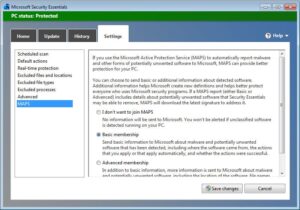Everything you need to know about the Oracle NetSuite infrastructure

Oracle NetSuite is a suite of cloud-based software that provides a comprehensive platform for managing your enterprise’s business processes and data. In this article, we’ll take a look at what Oracle NetSuite is and what it offers businesses, as well as some of the key features that make it such an advantageous choice for management.
What is Oracle NetSuite?
Oracle NetSuite is a suite of software that helps businesses manage their data and applications. It is available in two versions: Standard and Enterprise. The Standard version is free, while the Enterprise version costs $5,000 per user per year.
The Oracle NetSuite platform lets businesses manage their own technology, which can make it easier to find and use the right tools for the job. It also provides a single view of all the business’s data and applications, giving managers more control over how they use resources.
Oracle NetSuite can automate tasks such as provisioning new servers, setting up security protocols, and deploying applications. This makes it easy for businesses to get started with new technology and keep track of changes as they happen.
Oracle NetSuite is available in several languages, including English, French, German, Italian, Japanese, Portuguese, Spanish, and Chinese.
What are the different types of Oracle NetSuite licenses?
Oracle NetSuite offers three types of licenses. The Standard Edition license, the Data Foundation Edition license, and the Cloud Edition license. Each of these licenses has certain features and benefits associated with it.
There are also add-on licenses available that provide additional features or functionality. For example, the Advanced Security Option add-on license provides enhanced security for data in Oracle NetSuite.
Standard Edition: This is the base license for Oracle NetSuite. It includes basic features such as users, files, databases, applications and dashboards. Additional features can be purchased as add-ons.
Data Foundation Edition: This is a higher-level licensing option that provides enhanced capabilities and functionality. Features include scalability, high availability and security enhancements. Data Foundation Edition is designed for use with large enterprises that require significant management and reporting capabilities. It is not appropriate for small businesses or individual users.
Cloud Edition: This is the newest edition of Oracle NetSuite. It includes all the features of the Standard Edition and the Data Foundation Edition, but it is delivered as a service over the internet. This makes it particularly suited for cloud-based applications such as e-commerce or social networking sites
What are the different features in an Oracle NetSuite deployment?
Oracle NetSuite gives you a comprehensive suite of business applications that can save time and money. The different features in an Oracle NetSuite deployment can include:
The Oracle NetSuite infrastructure is designed to make it easy to get started with the platform. You can download a free trial of the platform to check out what it can do for your business. The trial allows you to try out key features of the platform, including managing customer relationships, tracking inventory, and generating reports.
How to set up an Oracle NetSuite environment?
Setting up an Oracle NetSuite environment can be a daunting task, but with the right tools and guidance, it’s a relatively simple process. In this blog post, we’ll walk you through the essential steps to setting up an Oracle NetSuite environment on your own computer.
First, you’ll need to download and install the Oracle NetSuite software. Once installed, open the program and click on the “Create a new instance” button.
Next, enter the details for your new instance and select a location for the software to store its files. Click on the “Create” button to finish setting up your instance.
Now that you’ve created your instance, you’ll need to configure it. To do this, click on the “Configure” button in the main window of the program and then select your instance from the list of available instances.
In the “Configure Settings” window, you’ll need to specify important information about your instance, such as its name and server address. You’ll also need to provide authentication credentials for users who will be able to access your instance.
Finally, you’ll need to set up users and groups in order to allow access to your instance by
How to migrate from another platform to Oracle NetSuite?
If you are considering migrating your business to Oracle NetSuite, you may be wondering what the different options are for moving your current platform to Oracle NetSuite. This blog post will discuss the different ways that you can move your business to Oracle NetSuite and walk through the steps involved in each option.
Option 1: Migrate from Microsoft Office 365
If you are running Microsoft Office 365, the easiest way to migrate is to move all of your data over to Oracle NetSuite. This process can be done in a number of ways, but the most common way is to use an online data migration tool. Once your data is migrated, you will have access to all of the features and functionality that Oracle NetSuite offers.
Option 2: Migrate from an on-premises platform
If you are running an on-premises platform such as IBM WebSphere or HP OpenView, you can also migrate your business to Oracle NetSuite. In this case, you will need to purchase a license for Oracle NetSuite and then migrate your data over. The process of migrating your data can vary depending on the platform that you are using, but it is usually relatively easy.
What are the benefits of using Oracle NetSuite?
Oracle NetSuite offers a comprehensive suite of products that help businesses manage their business processes more effectively. In this article, we will discuss some of the key benefits of using Oracle NetSuite to manage your business.
First and foremost, using Oracle NetSuite can help you save time. By consolidating all your business processes into one platform, you can reduce the time you spend managing these processes on your own. Additionally, using Oracle NetSuite’s automation capabilities can help you automate tasks and make them easier to manage. Finally, having access to an integrated cloud platform gives you the ability to easily access and deploy resources where they are needed most.
These are just a few of the many benefits of using Oracle NetSuite; for a full list, please visit our website or speak with one of our experts.







